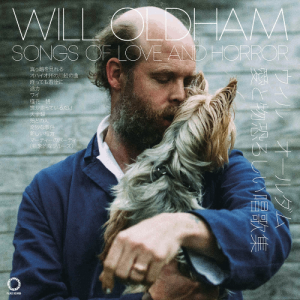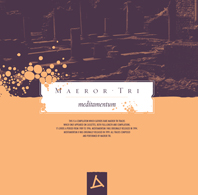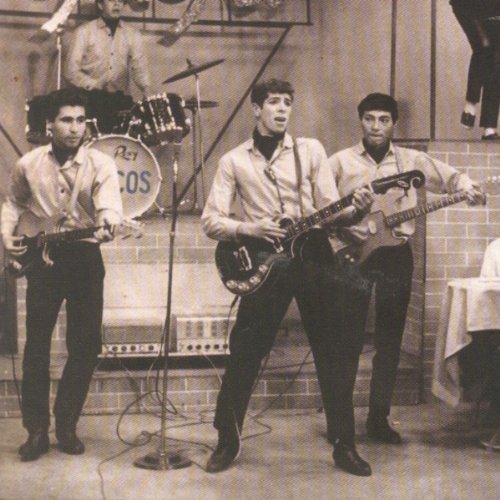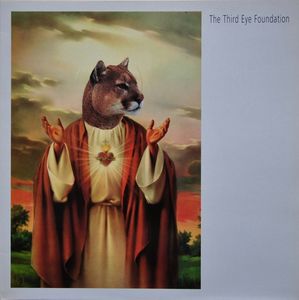Drag City (Americas) / Domino (Europe)
 Will Oldham is the player behind the part that is Bonnie “Prince” Billy and the musical entity that was Palace (Music / Songs / Brothers etc). Using these identities, Oldham has carved out a niche as the altest of alternative musicians, country or otherwise, and when he releases a record under his own name, there is the feeling that he is letting the mask drop and is perhaps more naked and alone than his roles usually allow.
Will Oldham is the player behind the part that is Bonnie “Prince” Billy and the musical entity that was Palace (Music / Songs / Brothers etc). Using these identities, Oldham has carved out a niche as the altest of alternative musicians, country or otherwise, and when he releases a record under his own name, there is the feeling that he is letting the mask drop and is perhaps more naked and alone than his roles usually allow.
Oldham is also publishing a lyric book this autumn that shares the same title as the album, so that’s a good enough reason for (and explanation of) the LP appearing under his birth name rather than his more commonly used stage persona. As an exercise in either streamlining or rebranding, two of his early releases as Palace Music (Joya, from 1997) and Oldham (1996’s Arise Therefore) were also later relabelled as Bonnie “Prince” Billy records when they were re-released, though their feel is perhaps more transitional to the first Bonnie “Prince” Billy record proper, the Blue Lotus Feet EP, in 1998.
While Songs Of Love And Horror might perhaps serve as a form of greatest hits (a formula he has studiously avoided following), it’s never going to be that simple with Will Oldham. Following a series of covers albums of artists both revered (Merle Haggard on 2017’s Best Troubador LP or the Chivalrous Amoekons‘ upliftingly live and direct homage to perennial Oldham favourites The Mekons) and less well-known (last year’s Wolf Of The Cosmos was a rendering of the entirety of Susanna‘s 2007 LP Sonata Mix Dwarf Cosmos in imitable BPB fashion) and numerous re-recordings of his own Bonnie Billy back catalogue, Songs of Love and Horror, like his first self-titled Bonnie ‘Prince’ Billy LP, finds Will Oldham alone in front of a microphone with his guitar. That he has chosen to mostly revisit his own songs once again may be a disappointment to those who eagerly await something new, something with a full band (perhaps prefigured by this summer’s eccentric ode to “Blueberry Jam”, though that had the air of one of his off-the-cuff standalone singleton recordings), but this album serves a particular purpose in connecting all the various Oldham threads, to the lyric book in particular and under one central rubric. For the most part, the songs are crisply recorded, Oldham’s voice coming through strong and clearly while his guitar sounds live and dynamic. It’s s deceptively simple sound, and his voice comes across with an evident confidence and authority born from three decades and more of development of his unique singing style from the lo-fi days when Palace Brothers embraced the restrictions of the music-making tools and spaces available. There was a certain post-punk minimalist aesthetic to the Palace recordings, particular where matters such as tuning and recording fidelity were concerned. There is a hint of this rawness to be found on “Party With Marty (Abstract Blues)”, which sounds as if it was recorded with a cheap microphone, complete with hiss and room sounds. Here, Oldham sings a ballad of youthful partying and transcendent revelations at the ocean side “when they turned off the world a while” and they were “punching the lights out until the night’s out”. Whether this is a new song or an old one isn’t immediately obvious without research; Oldham’s voice sounds tremulous and younger, and in fact it seems that it is a demo recording from some years ago.There’s newly minted cover too, of Richard and Linda Thompson’s “Strange Affair”, which as ever when Will sings others’ songs, he makes all his own, drawing the original’s melancholy country harmonising into a stark acapella that only enhances the haunted mourning of the loss of innocence and the destruction of the promises of truth that it engenders., Both love and existential dread are pretty much inherent, especially in Oldham’s rendition, making it a highly suitable inclusion in this collection. Likewise, the stripped-bare “I See A Darkness” (admittedly sparse and sombre enough in its deathly slow original form) allows for a plainer take on this song of all Bonnie Billy songs than the muscularly upbeat 2012 full-band version. That was from Now Here’s My Plan, another EP of self-reworkings that accompanied the fascinating book Will Oldham On Bonnie ‘Prince’ Billy, a volume of long-form interviews edited from conversations conducted with Alan Licht. Here, it feels reflective and more world-weary, less bleak even, that the original version and this is one of those songs on Songs Of Love And Horror that matches more closely the way in which some (including “Strange Affair”) and many more besides from his oeuvre were heard at Bonnie “Prince” Billy’s recent solo acoustic tour performances too.
Songs such as “The Way” allow Oldham to focus tightly on communicating his deepest ponderings on love and life directly, with a tightly controlled command of these most powerful of emotions. This is most evident when entreating his paramour to “love me, the way that I love you” or the narrator of “New Partner” noting that while the subject of his musings is always on his mind, he has moved on — but they nevertheless will haunt him until he’s paid for whatever it is that he’s done. These interior monologues are delivered here almost conversationally in song, their forms writhing loosely from repetition and melody into sharply focused snapshots of lives lived with bittersweet passion, genuine love, self-inflicted disappointment and anguish in equal measure. Left to float free from the band format, they become intimately personal too and less suitable as singalongs than their earlier forms more easily lend themselves to be; instead, the story is foregrounded and brought into sharper focus as Oldham sings from the heart.“You remind me of something”, he sings on “The Glory Goes”, “the song that I am, and you sing me back into myself”, one of the most romantic lines ever sung by Oldham or Bonnie Billy, encapsulating perfectly why and how Will and the rest of humanity could feel love for another person. “When I wake, when I’m sleeping, the song is a man and a woman and everything else” (and before eyebrows are raised at all this heternormativity, Oldham has touched on ambivalent sexual identity and gender fluidity in songs like “Black Captain” and his duet with Cheyenne Mize “The Girl In Me”). “I like the places where the night does not need an end”, he observes, “where smiles break free… and the dancing goes on in the kitchen until dawn to my favourite song, that does not end”. If ever there was the perfect description of how it feels to be in love with life, with someone, with music and with the totality of this mortal coil, better or worse, then this is perhaps Oldham’s most cogent and coherent take on it to date.
Which is not to say that the songs as they reveal themselves this time around on Songs Of Love And Horror are anything like the definitive versions; as when Oldham took the sparser arrangements of Wolfroy Goes To Town and pepped them up into the full-throttle band experience of Singer’s Grave A Sea of Tongues, gospel choirs and all, the contrast between the former’s sublimely spacious production with the all-out splendour of the latter is bold. Given the minimal instrumentation of this album, which fits immediately into the longstanding tradition of artists presenting acoustic or otherwise reworked renditions of time-worn favourites in lieu of the money-spinning but overly easy option of shovelware best-of collections.Bonnie “Prince” Billy has already brought in the finest Nashville session musicians to make another disc of revisited songs, 2004’s triumphant (and occasionally pedal-steel twangy) Sings Greatest Palace Music, the closest he has yet come to achieving the status of wider country royalty than his self-bestowed princely title might allude (and quite why Will Oldham was never invited in for a cameo appearance on country music soap Nashville remains an abiding mystery). Bearing in mind that level of production quality has already been taken on board, by locating himself once again at the other extreme of recording fidelity, Songs Of Love And Horror serves its purpose both well and completely.
-Richard Fontenoy-



